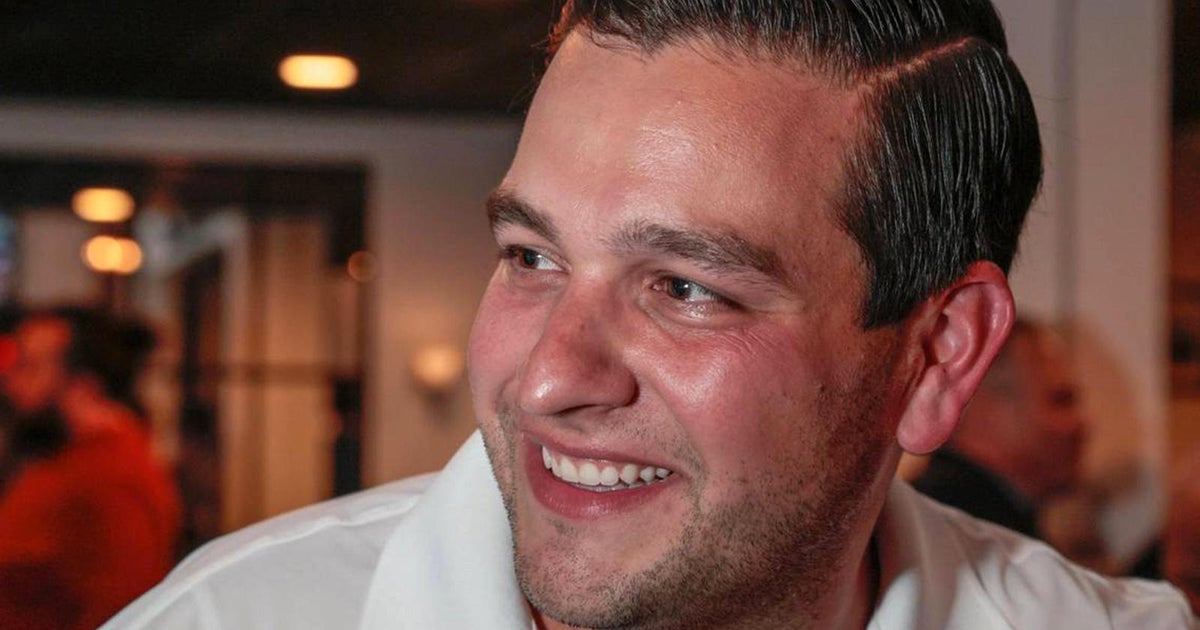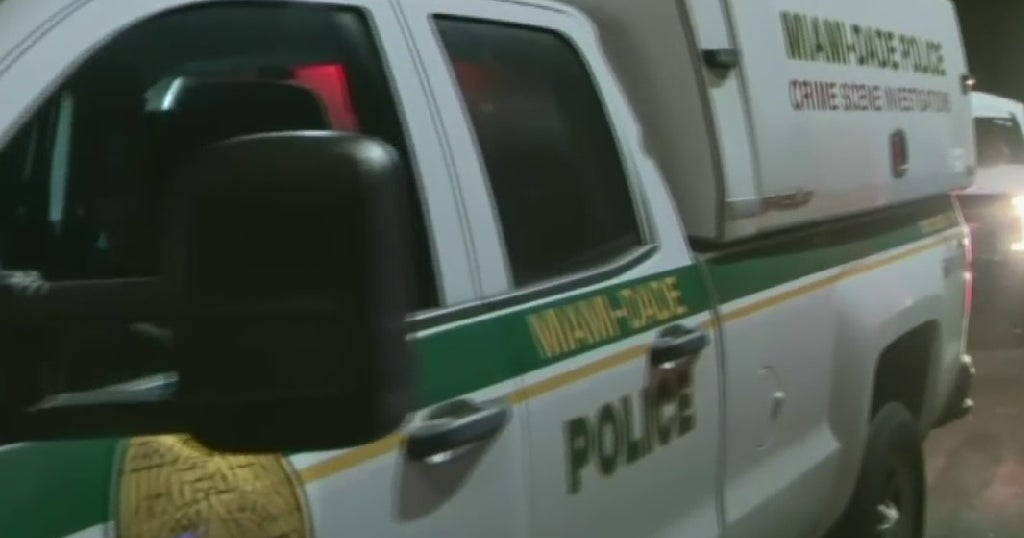New M-D Police Director No Stranger To Dealing With Violence
MIAMI (CBS4) - Miami-Dade's new police director said he understands the damage that violence can do to a community as well as individual families.
"I've always been aggrieved by violence and crime even from the time I was a child," Patterson told CBS4's Jim DeFede, in his first extended interview since becoming director. "I haven't said this yet but if you were going to talk about my history, my family, in my own house there was violence almost every day."
Patterson, 52, grew up in the Brownsville section of Dade. Known to locals as "Brownsub," Brownsville has always been a hardscrabble neighborhood that straddles NW 27th Avenue from 41st Street to 62nd Street.
His father was a laborer who worked on the Miami River in a metal scrap yard. His mother stayed at home raising Patterson and his six brothers and sisters.
"I can go back to seeing my mother, who I love with all my heart, getting beat all the time by my father," he recalled, "to the point where my uncle intervened to try and stop it. I still remember that incident as clear as yesterday."
Patterson said he was twelve – maybe younger – when the incident occurred.
"This is an incident, it did happen, because it involved my mother and father of course fighting and it involved my uncle, who was here visiting, taking a chair, my sister's little rocking chair and hitting my dad in the head with it. And when he hit my dad in the head with it, my dad also had a gun - I think he had a 22 pistol in his hand - and when he pulled the trigger that bullet went into the ceiling.
"And after that my uncle ran, but he came back. And when he came back my dad was waiting for him on the porch …he had a shotgun," Patterson continued. "He actually shot my uncle. And my dad went to jail that night."
Patterson said the event changed his life.
"Its part of the reason I'm not so violent," said Patterson, who is famously soft spoken and reserved.
Patterson said after years of keeping his family's secrets to himself, he has now decided to speak about them.
"I held this stuff in long enough," Patterson said. "It's time to let it go."
Patterson said his uncle recovered from his wounds. An initial search of court records did not turn up any files on the case – which would be more than 40-years-old.
Patterson said his father came home after a few days and his parents remained together. He said over the ensuing years his father's demeanor mellowed.
According to Patterson, his father died 25-years-ago. His mother, he said, passed away five years ago.
Asked why he thought his father was violent toward his mother, Patterson said "there were many reasons." He noted his father was an alcoholic as well as a gambler who dropped out of school after the first grade.
When he was asked if he was ever in trouble with the law as a teen, Patterson smiled and said he never did anything too bad. "Let's leave it at that," he added.
Patterson graduated from Miami Jackson Senior High in 1978 and joined the Air Force, rising to the rank of staff sergeant.
Patterson said the McDuffie Riots in Miami in 1980 are the reason he became a police officer.
"I happened to be in the Air Force when the riots were going on," he said, "and I was sitting in a room where the television was on, talking to some of my colleagues from all over the country, and all they talked about was how terrible things must be in Miami for that to be occurring. And they kept talking so much it annoyed me."
He said in his heart he knew he had to return to Miami to make a difference.
In 1982 when he was honorably discharged from the Air Force; he went to the police academy and joined the Miami Dade Police Department in 1984.
He said stemming violence in the community remains his highest priority. But simply locking people up alone will never solve the problem.
"The jails are full of people, but the reality is we still have crime," he said, adding that as a community we need to start addressing the root problems. "Nobody grows up saying I want to be a robber, I want to be a murderer, I want to be a thief. The honest discussion is if people had jobs and could afford to buy things would they be thieves? Would they be robbers? If people thought that they had options would they exercise them? I want to believe that they would?
Is he worried he may come across as a liberal do-gooder who seems reluctant to throw people in jail?
"Well, I don't have a problem taking people to jail who need to go to jail, and I don't think anybody who works for me has that problem," he said. "But that is not the ultimate solution."
Does he consider himself a cop who comes from Brownsville or a kid from Brownsville who became a cop?
"A kid from Brownsville who became a cop," he said.



